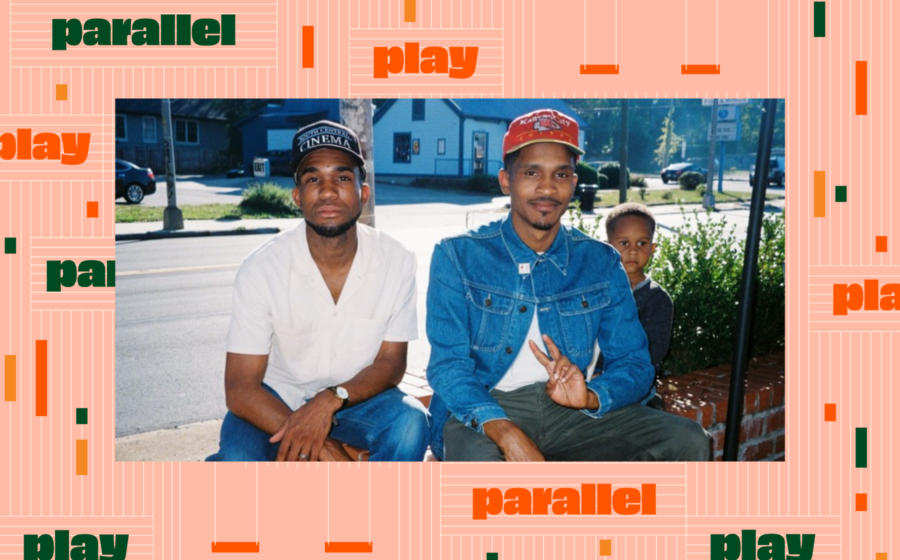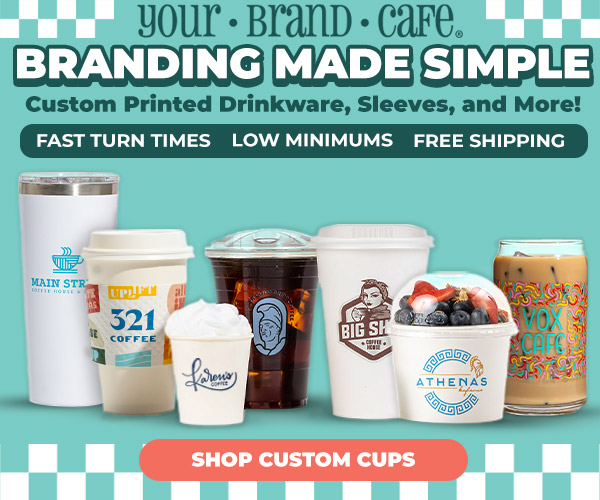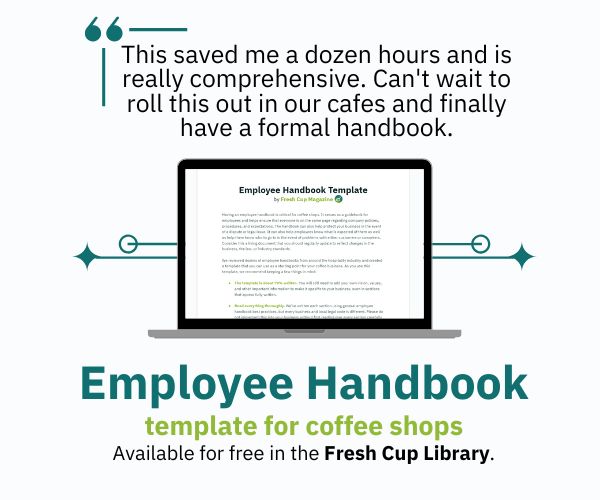One Saturday afternoon, during a blueberry waffle-filled kiddo play date with family and friends, I noticed something odd: all the toddlers were running around, but none of them were playing with one another. Instead, they played by themselves, each preoccupied with their own little world. But they were still playing next to one another, seemingly finding comfort in each other’s proximity.
My observation wasn’t something novel. What I was witnessing was actually an important phase in child development called parallel play. Parallel play is a way for young children, usually around 18-30 months, to share and interact with one another at an age when they might not have the words or social skills to play together.
On the drive home after the play date, I realized that I often operate my business—and my life—in a similar way. I may not be a toddler, but I too participate in a form of parallel play, unnecessarily isolating myself from a community of fellow entrepreneurs who are often right alongside me, facing the same challenges in life and business.
My name is Aaron Fender. In 2019, a few friends from the neighborhood and I decided to start Portrait Coffee, initially a roasting company and now a cafe in Atlanta, Georgia. Our goal was to introduce a new narrative in the specialty coffee world by empowering Atlanta natives and residents with genuine career and life opportunities in the coffee industry.
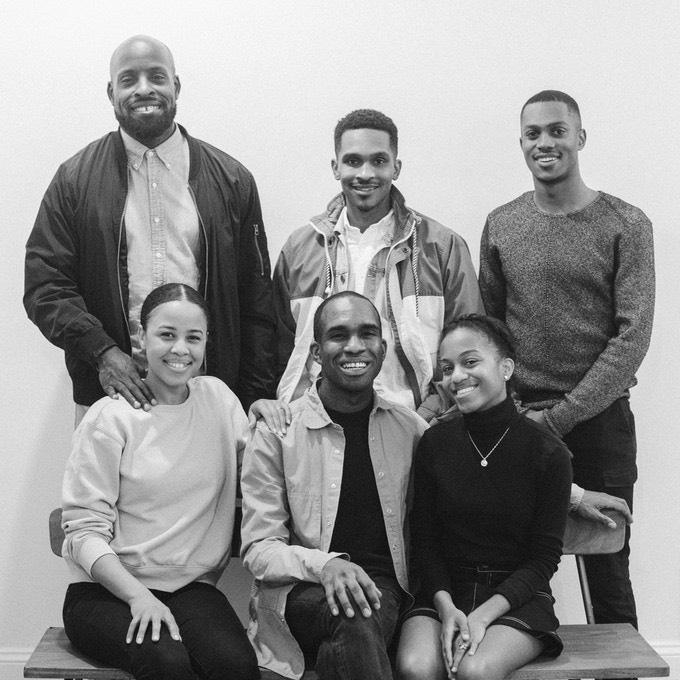
I’ve experienced immense professional and personal growth in the nearly five years since Portrait opened. But perhaps the most salient lessons I’ve learned happened when I took a moment to look outside my own struggles—my own play—and see that others were experiencing the very same highs and lows I was. And I’m thrilled to share some of those lessons with you through my new column, Parallel Play.
I see this column as a space for entrepreneurs and anyone interested in the business of coffee to reflect and tap into the wisdom of fellow entrepreneurs across parallel fields. I hope that, together, through conversation and exploration, we can mature, innovate, and uncover ways to flourish collectively.
How Design Thinking Saved My Business (And My Mind)
I want to start this column by looking inward and telling you about my incredible brother and business partner, Marcus Hollinger. We bonded as roommates after college graduation—he was the first person I discussed the idea of Portrait Coffee with. Marcus, ever encouraging and kind, pulled out a notebook and started sketching potential branding and marketing ideas. In both life and business, Marcus excels at simplifying complex problems.
Marcus says he draws inspiration from a concept called design thinking, which he defines as a “set of tools and mindsets useful to organizations navigating ambiguity and cultivating innovative cultures.” Design thinking involves empathizing with others, defining problems, ideating solutions, prototyping (rapid experimenting), and testing at scale.
In late 2022, as Portrait emerged from the pandemic, we found ourselves at a crossroads: we were striving to maintain growth in our roasting business while completing construction on our new cafe. Operating a coffee manufacturing facility is cash-intensive, leaving us with no spare funds to move forward. At the same time, our neighborhood eagerly awaited the opening of the shop to have a local gathering space.
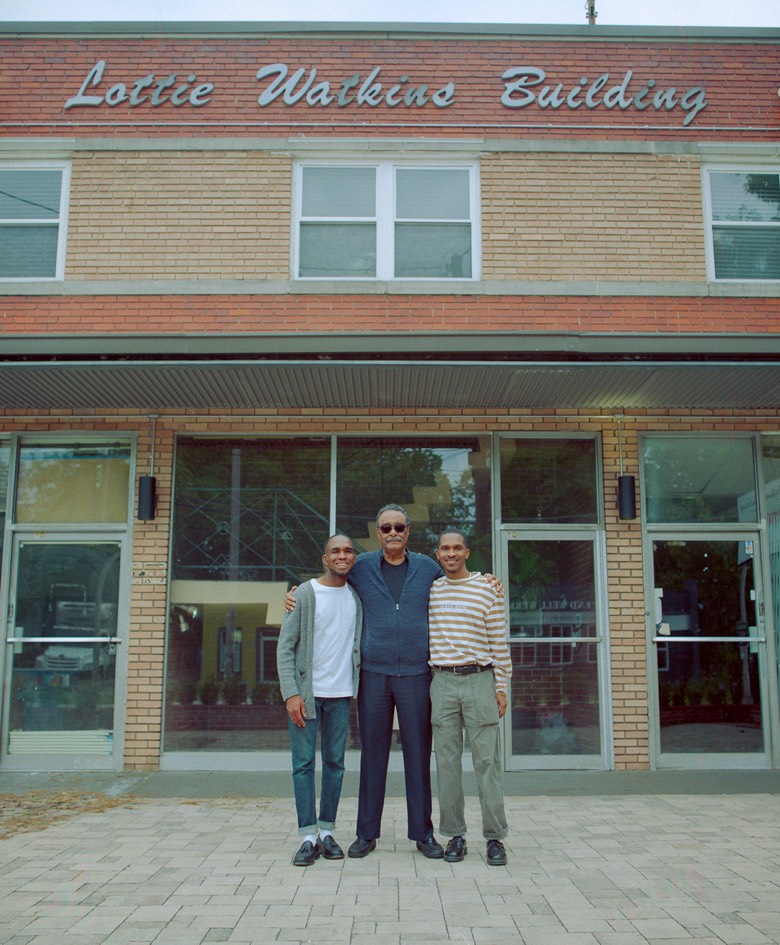
As a new business with an unproven track record, we sought alternative investment opportunities, ultimately turning to public (equity) fundraising. We launched a crowdfunding campaign where our community had the chance to buy shares of Portrait. We called our campaign “First Name Basis” to emphasize the idea that being an investor in our business didn’t need to be intimidating. We wanted to invite our friends and customers to join us as partners in building Portrait.
Navigating the uncertainties of equity fundraising proved challenging. Some people were bought in immediately, but we struggled to convince others that a coffee company could drive real change in a fiercely competitive industry. People believed in Portrait because of our vision to pour a new narrative and “to change the picture that comes to folks’ mind when folks think of specialty coffee,” as we wrote in our crowdfunding campaign. To make this fundraising effort successful, we needed to show folks that this narrative could expand outside coffee and into equitable ownership.
Before launching the campaign, we tested the idea by surveying our customers. We asked if they would be interested in investing in our business for as little as $100. The overwhelmingly positive response confirmed our path forward, and we thought we had a solid plan in place.
So we tested the idea again, this time with members of our inner circle. We gathered a small group of friends, family, and team members and asked, “How might we inspire our supporters to feel wildly excited about becoming a part of our team by investing?”
Just days before the launch, we began receiving feedback internally and were surprised by the emotionally negative response. Our team pointed out things we hadn’t fully considered: they were confused about whether investors would get their money back, some had questions about what investment even meant, and some indicated that they thought the idea might come off as cheesy or corny.
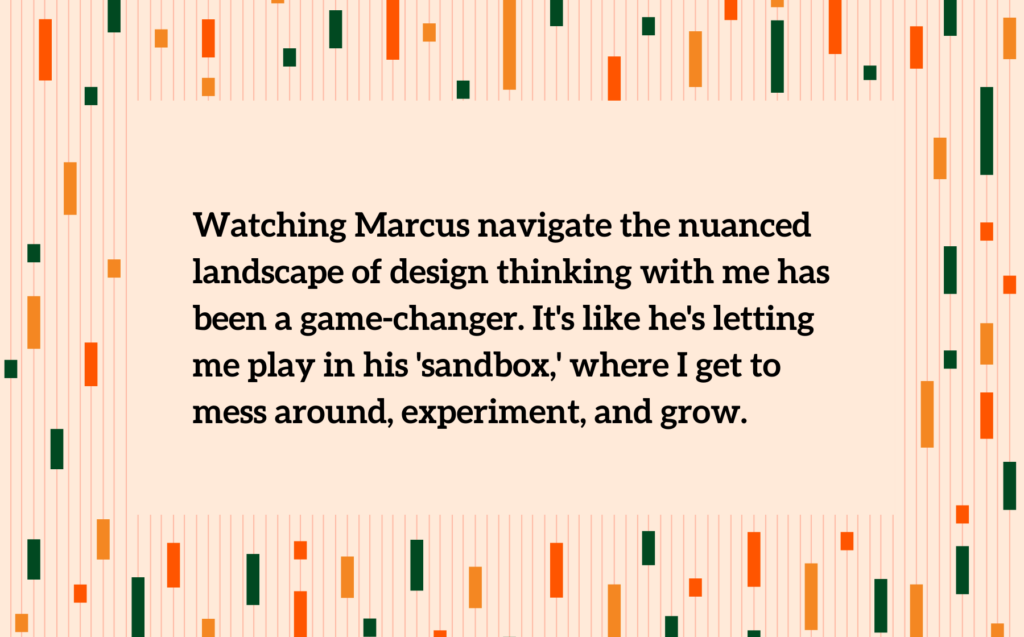
In a pivotal moment just days before the campaign launch, Marcus pulled me aside and reassured me that this feedback was actually a positive. “Early failure is a good thing,” he said. “Now we know how to pivot.”
That’s the gift of empathy. The feedback we received forced us to put ourselves in the shoes of our potential investors: instead of trying to come up with a catchy campaign, we shifted our focus to cultivating curiosity, clarity, and delight for potential stakeholders.
Little did I realize at the time, Marcus was guiding me through my first experience in design thinking, where we empathize with the challenges of fundraising, defined the problem, ideated solutions, and tested prototypes with our team and selected supporters.
This journey served as my crash course in design thinking and emphasized the importance of empathy. “Design thinking is a superpower for entrepreneurs,” Marcus says. “It’s all about centering people first and shifting from just selling products to creating solutions that revolve around your customers.”
Design With Empathy
Empathy shapes every decision I make, a lesson that keeps unfolding in the world of business. Watching Marcus navigate the nuanced landscape of design thinking with me has been a game-changer. It’s like he’s letting me play in his ‘sandbox,’ where I get to mess around, experiment, and grow. Seeing Marcus implement these strategies and mindsets has deepened my understanding and practice of empathy, and I see this come up in my everyday interactions at Portrait.
I had a magical “aha!” moment during one of our coffee-tasting events. We invite our community to immerse themselves in the world of coffee through tastings and education. We hosted these events before the cafe opened as an opportunity for folks to get familiar with us and for us to learn more about our neighbors.
During these gatherings, we try to connect with attendees beyond tasting coffee together—we don’t wait for the event to start before chatting with people; we’re usually walking around asking questions like, “What’s your name?” or “How did you hear about the event?”
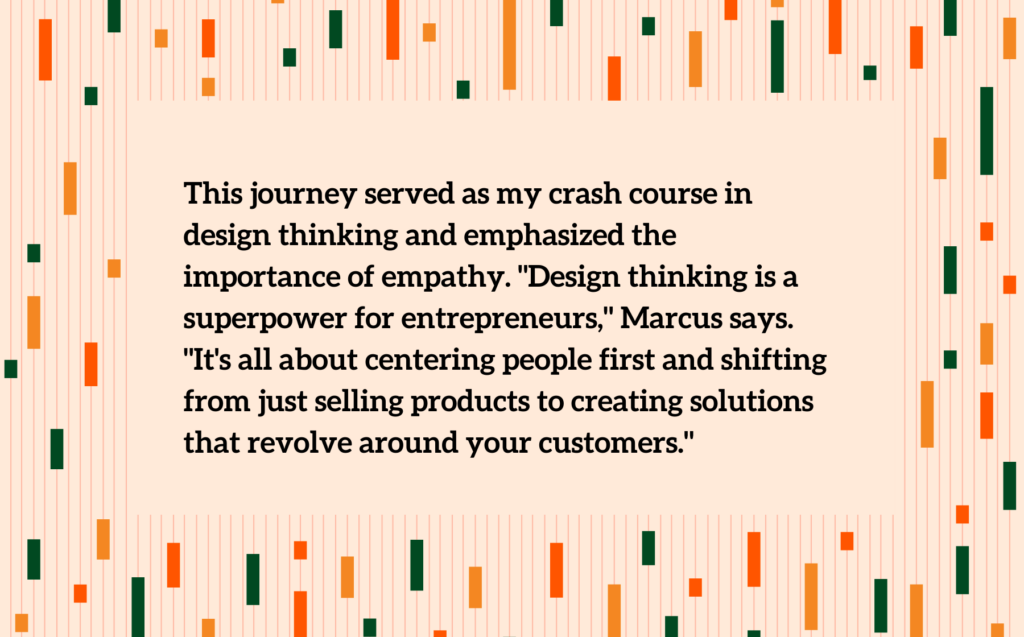
Before one particular tasting, I was walking around asking people questions, and a guest (let’s call him Rodney) shared something genuinely profound. With openness, he admitted, “I’m really just looking for a friend.”
I paused for a moment. Then I asked, “Can you share more?”
Rodney explained that he had recently graduated from college and moved to Atlanta for a new job. Socializing during COVID-19 had proved difficult, and Rodney was there that day to make a new friend.
Meeting Rodney marked a pivotal moment for Team Portrait—and for me. It dawned on us that events have major potential to build camaraderie in our neighborhood. Marcus later named our educational series Saturday School: an education series centered around interactive play and community building.
As we brainstorm new events, we think about their potential impact—and fostering genuine friendships remains a core value. None of this would’ve been possible without actively listening to Rodney, empathizing with his experience, and realizing our educational series was an opportunity to do something special for him and our neighborhood.
By asking open-ended questions, listening well, and taking extra note of those emotional surprises, we can truly start to design things—from classes to seating arrangements to menu layout—that meet our customers where they’re at. I’m happy to say Rodney still comes to Portrait to this day, making new friends at the cafe.
Time to Play
Design thinking guides me—and the entire Portrait team—to keep our customers at the heart of everything we do, and that’s a lesson I would have never learned without Marcus. By actively listening and empathizing with their needs, we can do innovative things that actually make sense for our customers.
I’m excited for the future of Parallel Play and to explore just how much we have to learn from others around us. In the coming weeks and months, we’ll explore different entrepreneurial worlds, from fashion to commercial real estate to fine dining to coffee manufacturing.
We’ll chat with entrepreneurs about the challenges they’ve faced and the lessons they’ve learned along the way. If you get anything from this column, I hope you’re inspired to be curious and seek out answers from your friends and community—you never know what others are going through and what they have to teach you.
Have any topics or ideas you’re curious about? Shoot me an email at aaron@portrait.coffee, and let’s explore them together. Until then, let’s continue our journey of parallel play, learning, growing, and innovating alongside each other. Welcome to Parallel Play!

